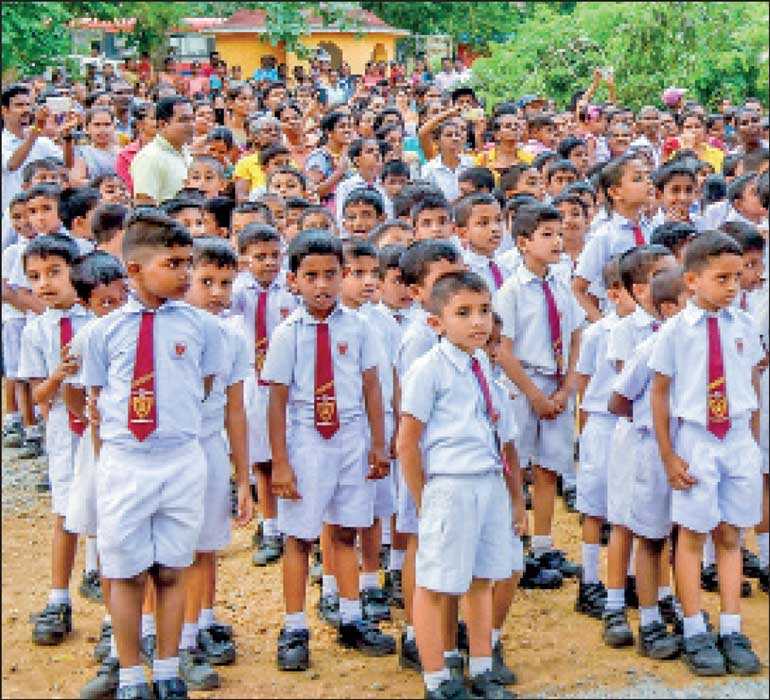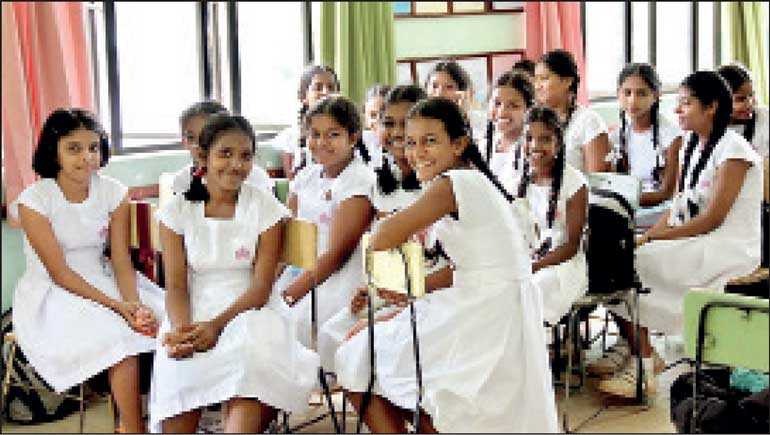Tuesday Feb 24, 2026
Tuesday Feb 24, 2026
Thursday, 14 May 2020 00:00 - - {{hitsCtrl.values.hits}}


With the sudden closure of schools on 12 March, the Sri Lankan education system plunged into a crisis. Overnight teachers had to gear themselves for on-line teaching and other methods of distance education. The GOSL swiftly moved in to address the concerns of students preparing for Grades 5 Scholarship examination and Ordinary Level and Advanced level examinations, due to start from August, by telecasting lessons for those students. However, the schools were not at all prepared for a distance learning mode, and hence innovation became an urgent necessity to reach out to the full student population. Further, COVID-19 is not going be fully curtailed anytime soon. Even if schools start, we can expect sporadic disruptions due to new waves of the pandemic. Therefore, it is critical that we come up with short term fixes as well as long-term solutions to the distance education of school children in the time of calamities.
In considering the need, Education Forum Sri Lanka (EFSL) has initiated a series of virtual dialogues on “Distance Education in the time of Calamities and Beyond” to identify good practices in distance education and make recommendations to policymakers. Twenty or more case studies gathered through a focus group of teachers and researchers, and further contributions by the participants of our first dialogue revealed three major issues.
Sixty percent of households with school-age children have no Internet
According to a comprehensive survey of mobile use in Sri Lanka by LIRNEasia, in 2018 only 40% of households in Sri Lanka with children aged 5-18 had an Internet connection. More than 90% of these connections are accessed through mobile networks using a Smartphone.
Of these households with Internet access, an Online Real-time Classroom experience is enjoyed only by students attending a few select schools. This experience would be for about 1-2 hours per day, with a variety of self-learning educational materials supplementing the online experience. The percentage of children receiving such an online classroom experience seems negligible given that even some of the popular schools in Colombo have not been able to provide that kind of experience to their students.
Essentially, the primary mode of distance education for 40% of families with Internet access is receiving notes or assignments over mobile apps like WhatsApp and Viber. For those families for whom the smartphone is the only device connected to the Internet, dedicating it to the use by one or more children, with or without adult supervision, is difficult. When large quantities of notes are sent, the situation becomes unmanageable. The other sixty percent remained unreached.
Notes and tutorials sent over WhatsApp is not education
Parents cannot substitute for teachers. Even parents who are teachers find it difficult to teach your own child at home. Without adult guidance, notes and tutorials do not make an education. Further, as  parents are finding out, the problem is not technology. The mode of education in Sri Lanka, where large quantities of facts are communicated to children in preparation for exams, is perhaps the biggest barrier to distance education. Students being used to spoon-feeding is also tied to this testing of facts through examinations.
parents are finding out, the problem is not technology. The mode of education in Sri Lanka, where large quantities of facts are communicated to children in preparation for exams, is perhaps the biggest barrier to distance education. Students being used to spoon-feeding is also tied to this testing of facts through examinations.
Less content and less spoon-feeding will benefit all?
The situation is not dire. Almost all households have access to a mobile phone though less than half will have a smartphone. Textbooks are given free to all children for all subjects in Grade 6-11, making notes and tutorials sent over WhatsApp somewhat redundant. Mail service is available for almost all homes. Broadcast TV and radio are other modes that are more widely available. If the content is less and students are guided to be self-directed, some of these non-Internet solutions can be used for distance education to better effect. Although the lockdown may be eased, schools may not start for some time, and the necessity of communicating a leaner and smarter education to children without Internet access may benefit the education of all children irrespective of their level of access to technology.
Education Forum will be hosting a Zoom Dialogue to address these issues on Saturday 16 May. Please email [email protected] or visit our Facebook to receive an invitation.